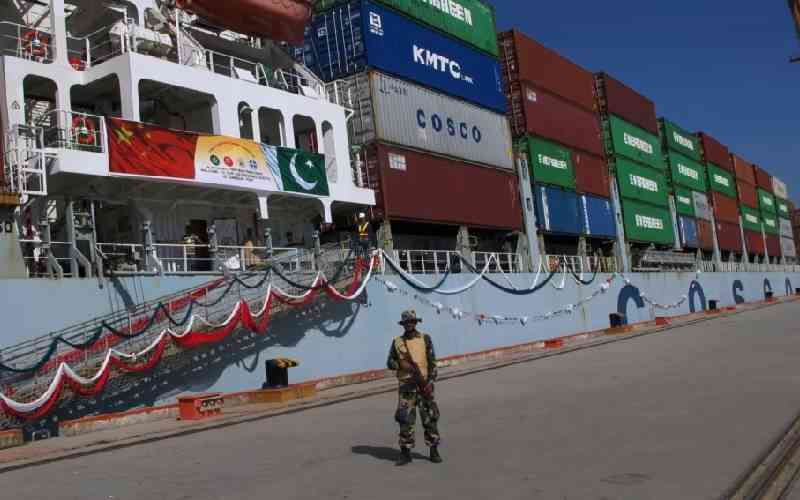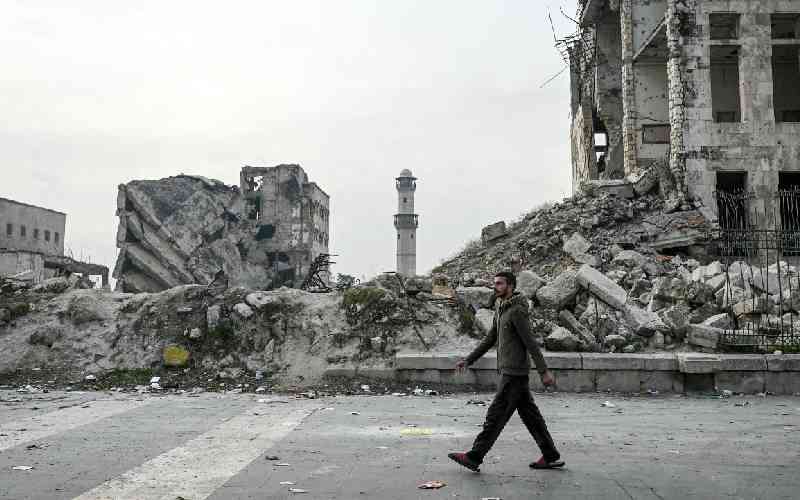
Authorities in southwestern Pakistan said Sunday that insurgents attacked a convoy carrying Chinese engineers to the China-run Arabian Sea Gwadar port, but the foreigners were not harmed.
The ambush began with assailants detonating a roadside bomb before opening fire on several "bulletproof" vehicles reportedly transporting 23 Chinese citizens from the airport to the deep-water strategic Pakistani port.
Local Pakistani police and military officials said the ensuing gun battles with security forces escorting the convoy killed two "terrorists" while several security forces were injured.
"The incident caused no casualties on the Chinese side, and the relevant personnel have been properly placed in safety," said the Chinese Embassy in Islamabad.
A statement from the embassy urged Pakistani authorities to thoroughly investigate the "terrorist act" and "severely punish" those behind it. The statement called on the host government to take "practical and effective" steps to counter such incidents in the future.
"China will continue to work with the Pakistani side, to jointly counter the threats of terrorism and earnestly protect the safety of Chinese personnel, institutions, and projects in Pakistan," the embassy stated.
There was no immediate comment from the Pakistani government, but the Pakistan military issued this statement while sharing details of its forces' retaliation to the attack, "security forces of Pakistan remain determined to thwart efforts of the enemies of peace and prosperity in the country."
The separatist Baluchistan Liberation Army, or BLA, claimed credit for plotting Sunday's ambush in Gwadar, saying it killed several Chinese workers and Pakistani security forces escorting the convoy. The outlawed group often releases inflated claims.
The BLA has previously targeted Chinese personnel working on infrastructure development projects under the China-Pakistan Economic Corridor, or CPEC. The multibillion-dollar flagship program is the biggest extension of Beijing's global Belt and Road infrastructure initiative.
The Gwadar port in southwestern Baluchistan province is the centerpiece of CPEC, linking the two countries and giving China the shortest possible trade access to international markets.
Beijing is also building an international airport in Gwadar. Pakistani officials say it is expected to be inaugurated next month.
Pakistan, the United States, and Britain have designated the BLA as a global terrorist organization.
Like other Baluch insurgent outfits, BLA has vehemently opposed CPEC and other Chinese investments in Baluchistan, publicly threatening to attack Chinese workers associated with them.
Insurgent attacks have killed more than a dozen Chinese citizens recently, prompting Beijing to press Islamabad to ensure security measures for CPEC projects and its nationals in Pakistan.
China has lately directed its diplomats and workers to strictly limit their movements and avoid visiting certain Pakistani cities for security reasons.
China's investment under CPEC has built roads and power plants and made the Gwadar port operational over the past decade when the bilateral project was initiated.
Last month, Chinese Vice Prime Minister He Lifeng visited Islamabad to participate in a government-sponsored ceremony marking the 10th anniversary of the CPEC collaboration.
Officials in both China and Pakistan say CPEC has created nearly 200,000 direct local jobs, built more than 1,400 kilometers (870 miles) of highways and roads, and added 8,000 megawatts of electricity to the national grid, ending years of blackouts caused by power outages in Pakistan.
 The Standard Group Plc is a multi-media organization with investments in media platforms spanning newspaper print
operations, television, radio broadcasting, digital and online services. The Standard Group is recognized as a
leading multi-media house in Kenya with a key influence in matters of national and international interest.
The Standard Group Plc is a multi-media organization with investments in media platforms spanning newspaper print
operations, television, radio broadcasting, digital and online services. The Standard Group is recognized as a
leading multi-media house in Kenya with a key influence in matters of national and international interest.











